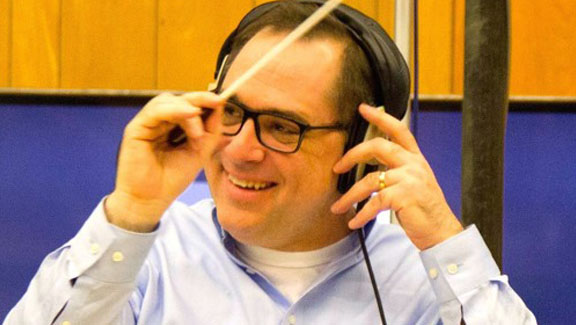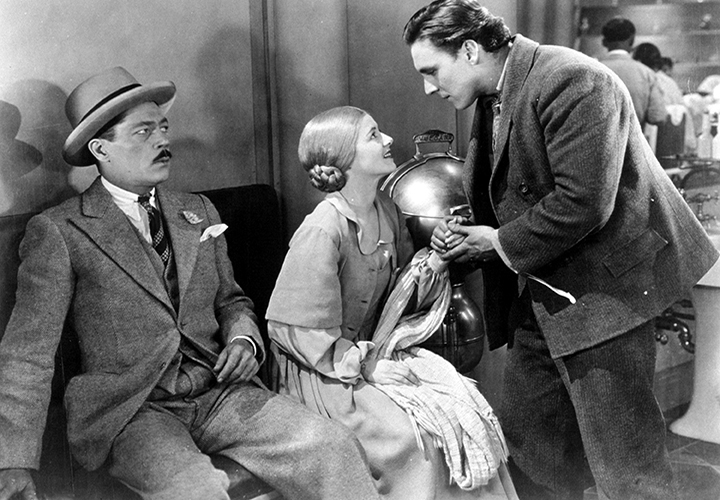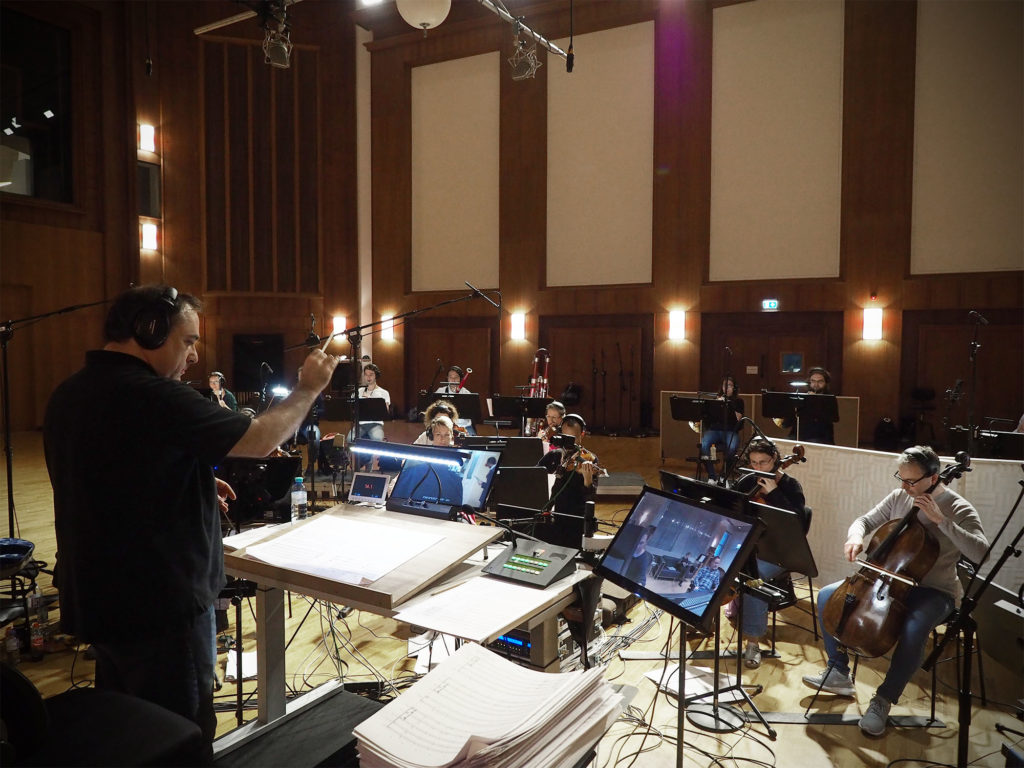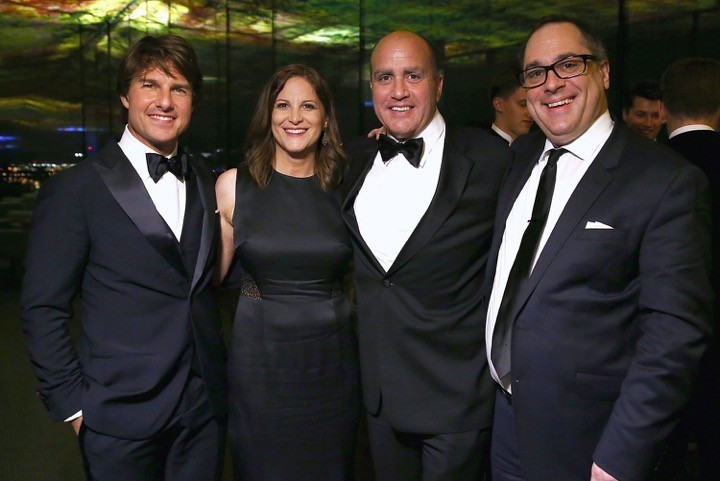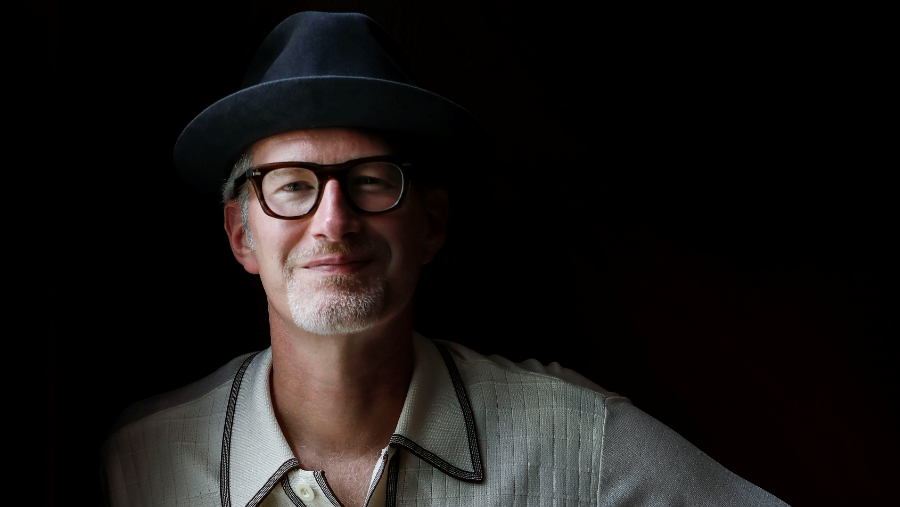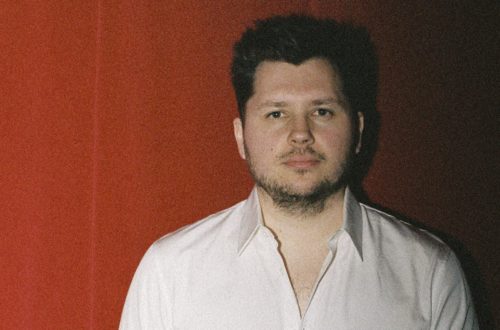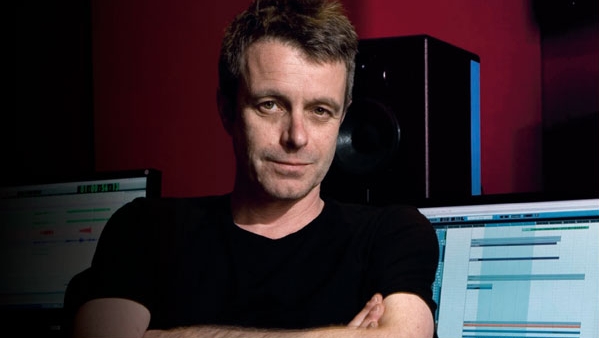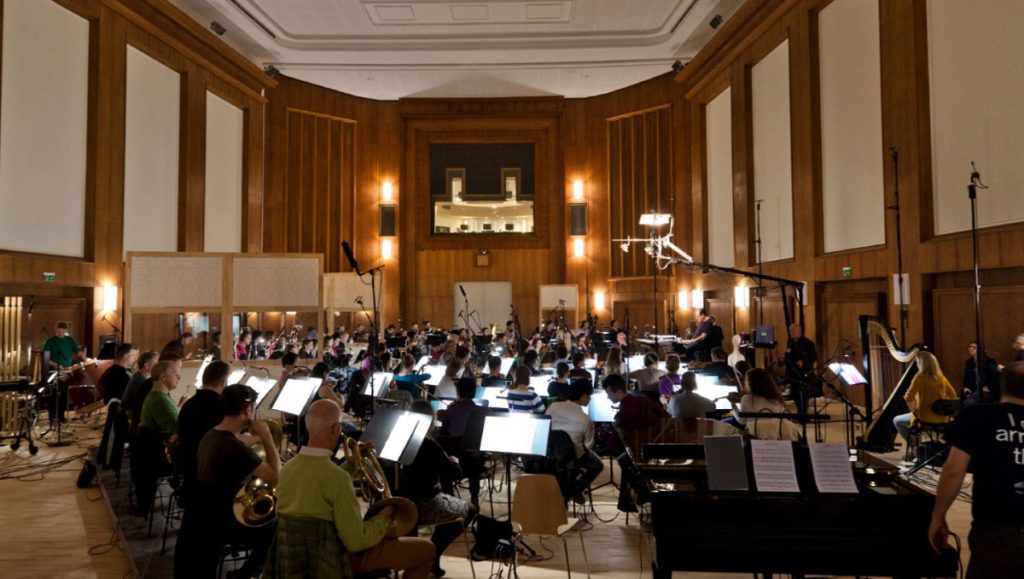 Hollywood Music Workshop celebrates its 10th Anniversary this year, and part of the festivities outside the classes in the workshop include a live concert in association with Warner Brothers at the Casino Baden, featuring iconic film music performed by the Synchron Stage Vienna Orchestra under the baton of Joe Kraemer and Conrad Pope.
Hollywood Music Workshop celebrates its 10th Anniversary this year, and part of the festivities outside the classes in the workshop include a live concert in association with Warner Brothers at the Casino Baden, featuring iconic film music performed by the Synchron Stage Vienna Orchestra under the baton of Joe Kraemer and Conrad Pope.
The set list is chock full of iconic film scores from Warner Bros. films and brings the sounds of Max Steiner, Erich Korngold, Ennio Morricone and John Williams (to name but a few) to the Baden concert hall. The program will also include original music by Joe Kraemer and Nan Schwartz.
I just returned from L.A. (where I spent some time at the WB studio), and as Casablanca is one of my top 3 films of all-time, the news of this concert prompted me to reach out to Kraemer to get an inside look as to what students of the workshop and film score fans can expect. Enjoy the entirety of our time with Joe Kraemer.
GoSeeTalk: Joe, thanks for taking time to meet with us. How long have you been involved first get involved with the Hollywood Music Workshop? Tell us about the events at the workshop and what got you interested in the first place?
Joe Kraemer: This is my third year teaching with the workshop in Austria and each year I have become more involved. Part of the organization’s mandate is an outreach event to involve the community, and the first year I was here, Conrad and I did a presentation about the Star Wars saga and his involvement with the three prequel movies as John Williams’ orchestrator.
Last year I presented my score, a new score to a 1923 silent film called Sunrise, which I conducted live to picture. This year, we are doing an event called Hollywood Dreams which is inspired by the students in our workshop and it’s based on the dream of going to Hollywood to write music for movies.
It reflects what we are teaching at the workshop. I grew up in Upstate New York, and Hollywood was a far off land, so moving there was a dream for me as well. For this concert, we were lucky enough to get Warner Bros. involved, and from there I picked pieces that reflected the concept of dreams.
The first is a medley of Vangelis themes – Blade Runner and Chariots of Fire that I’ve arranged. Blade Runner is a film based on the Philip K. Dick novel, “Do Androids Dream of Electric Sheep?”, and Chariots of Fire speaks to anyone who’s dreamed of being an Olympic athlete. My second choice from the Warner Bros. catalog is an arrangement I’ve made of All the President’s Men by David Shire. Finally, because it was well received last year, we are reprising a little of my music from Sunrise.
How was it working on a silent film?
Well, in a funny sense, I almost prefer it because the director doesn’t give me a lot of notes on what to do with the music. [Laughs] But, seriously, what I like best about it is that when you perform it live to picture, it’s amazing by how much audiences are engaged by the movie. The movie holds up and the music breathes new life into the movie. Even movies that are stylized and considered old-fashioned, when you put a contemporary score, or a score that is made with some of today’s aesthetics on it, it revitalizes it.
For me, when writing it, it’s fun because we don’t have to contend with dialogue or sound effects. I have a blank canvas, and I would like to do three or four more and have a portfolio of silent film scores.
I used chordal harmonies and textures that sound modern, and would have sounded out of place in 1923. For example, there’s a scene with a traffic jam, and I was able to mimic the sounds of the traffic with the instruments of the orchestra.
Silent films were like a new art form back then, and they were still figuring it all out. I’ve heard that, most times, they had a piano that would play as the film was screened.
That’s true, but it was different depending on the venue. The movie might play in New York, or London, or Berlin, and be performed by a full orchestra, but then as it traveled across America or Europe, it might have a chamber group, and then in small towns it might just be a piano player. Even if a score was written for the film, it didn’t always travel with the reels, and so piano players had these big genre books that were indexed by dramatic feel.
They would watch the screen, and if there was a love scene, they’d turn to the “love” section. It was really fascinating. There were no rules, so you could kind of do whatever you wanted.
How are you and orchestrator Conrad Pope splitting up responsibilities for the concert?
Well, last year, I did everything for Sunrise, because it was my pet project. But this year, Conrad is taking center stage for most of the concert. But as a returning member of the faculty, Dimitrie Leivici, who runs the workshop, wanted to include me, as well as Nan who has a piece in the concert. Conrad is doing most of the heavy lifting, [Laughs] and I’m looking forward to just sitting back and enjoying the show.
There is nothing that compares to seeing live orchestral music. And more so if you’re going to do pieces from Howard Shore and Ennio Morricone. But to plus the experience, and immerse the audience, are you going to show clips on a screen, or have ushers dress in characters from the films?
Oh, sure! They are creating a video montage of all the selections so I’m sure there will be clips from All the President’s Men. We will also have images from Sunrise and other films. The orchestra will be playing music from Harry Potter and The Witches of Eastwick, and Dimitrie is going to play the violin in the piano/violin arrangement John Williams made.
I’m a fan of The Way of the Gun – those drum cues are impossible to get out of your head – and you’ve done great work for the Jack Reacher and Mission: Impossible series. But if you have to leave the world of M:I, the only way up would be The Man Who Killed Hitler and Then the Bigfoot. Tell us about that!
[Laughs] It had its world premiere in Montreal a few weeks ago, and it really is a unique film. In a way, it’s
literally the title and yet nothing like the title. It sounds like a Troma film, or a Roger Corman movie, but it actually plays like a Frank Darabont or Robert Zemeckis film. It’s very sweet and very emotional, and the director gave me so much latitude to write and kept me on this trip I’ve been on with the traditional scoring style.
There’s such a departure from that (traditional scoring style) in modern film scores, which now are more from a rock and roll, three chord perspective and vocabulary.
It’s been nice to work with directors who are looking for, and excited to do, something like what Spielberg and Williams created, Jerry Goldsmith, Elmer Bernstein and Bernard Hermann, but without it feeling like a throwback.
Writing noteworthy scores for tent pole blockbusters is quite an accomplishment, but asked to teach must cement the fact you’ve made it. I bet giving back is just as thrilling as performing your work. But you probably have to cram a lot into the short schedule. How are the classes structured?
Baden, when I’m not teaching the workshop, is a paradise of spas and restaurants and bakeries, and it is indulgent and fun. But teaching is intense and it’s six days but I’m trying to cram 25 years of film composing experience into that. I do my best, and the students are happy and keep coming back, and our classes grow, which means we’re doing something right. [Laughs]
It is so rewarding to give back, and it’s energizing to interact with young composers, because composing is such a solitary lifestyle.
You’re in a room by yourself writing this music, and except for live performances and recording sessions, you don’t always see other musicians. L.A. is very competitive and not always terribly social, so it’s great to be around 15 composers who’ve come to study at the workshop.
You talk music with them, and hear their questions and share their perspectives, but as much as they want to learn from me, I also learn from them when I hear their stories, where they are in their career, and what their plans are. It’s also the perfect place to be, because you’re sort of on vacation, but you’re also in this think tank, where you study and just get down to what you want to learn.
What happens afterwards? Can you and the students keep in touch after they leave?
Social media makes staying in touch with people very easy and very doable. Between email, Dropbox, Facebook and Twitter, I stay in contact with any students who wish to.
The class doesn’t end after the 6th day. I look at teaching like a zip file. The students download the file into their brain for six days, but they spend the next year unpacking it. A lot of what I’ve given them requires practice and some lessons take a year to complete. For any questions they have, I want to be there when they need it.
What strength do you feel has developed the most for you? And what experience really helped you turn a corner in your career?
That’s a hard question to answer without sounding arrogant, [Laughs] but I think I’m proud of my melodic sensibilities, and I’m proud I’ve done the homework I needed to do so that I can write proper counterpoint and understand voice leading, things like that, and I can have some chance of carrying on traditions that are in danger of disappearing from film music.
If I could go back and talk to 13 year old me, who wanted to be the next Paul McCartney – a songwriter who was purposefully rejecting music theory and writing pop songs – and I could say, “one day you’re going to be at Abbey Road conducting a 90-piece orchestra for a Mission:Impossible movie”, I wouldn’t have believed it.
Another story is when I was writing for Jack Reacher, I had already written music for well over 50 movies, and 40 of them were for the Hallmark channel. They were always 80 minutes of wall-to-wall music and using synthesizers; none of it was live. So I was scoring this scene where Reacher is sitting on a bus, and I was writing the music and I had a French horn solo in it. The music kind of reminded me of Williams’ Born on the Fourth of July, and I was thinking, “Man, I would love to do this for real one day on a Tom Cruise movie,” then I snapped my head up and went, “Oh wait! I’m doing it, I’m doing it right now!”
Thanks to Joe for his time and to his publicist for arranging this interview. For more information on the workshop and concert event, click here to head to the official site for Hollywood Music Workshop. You can also watch the video to get an idea of what to expect at the academy.
